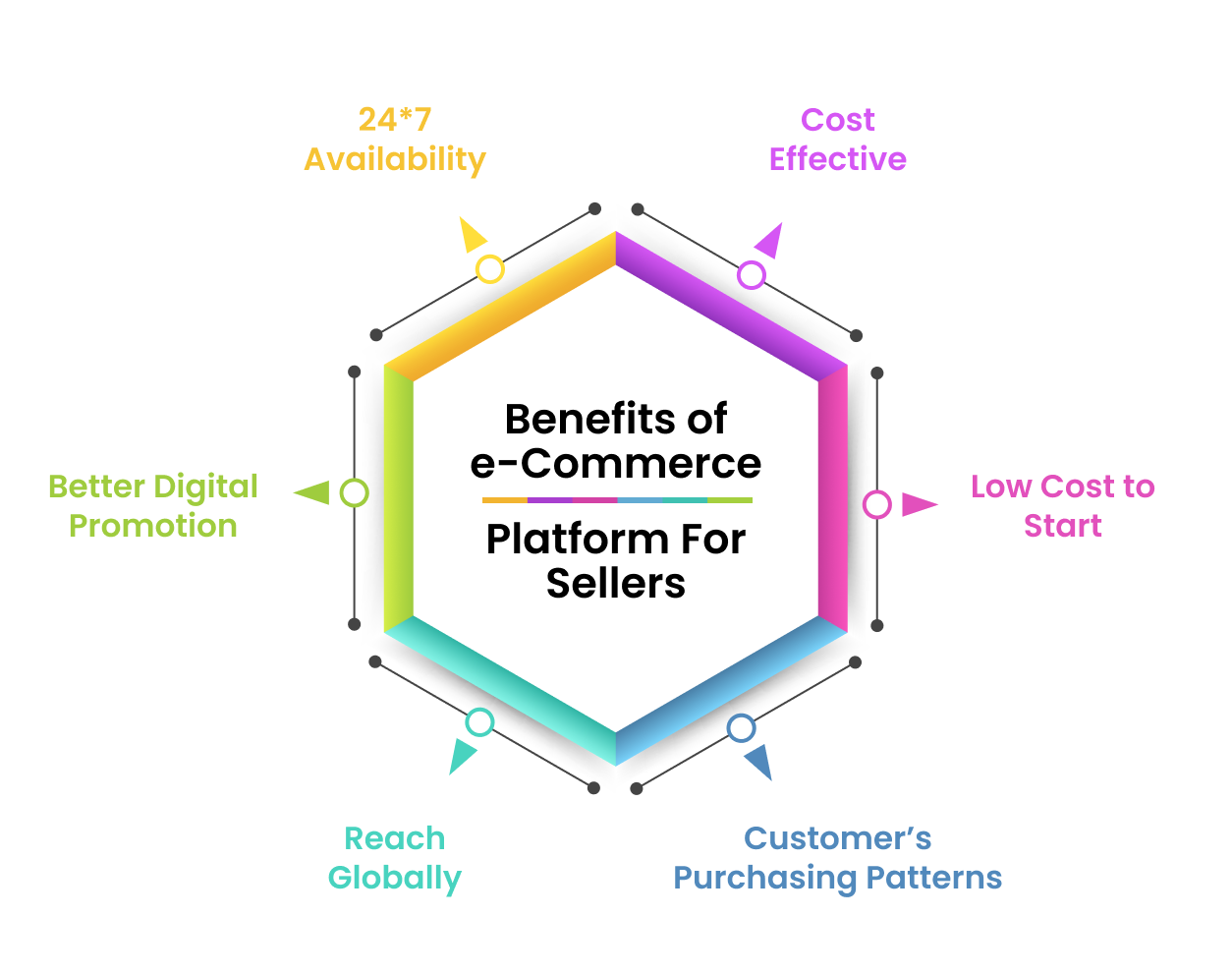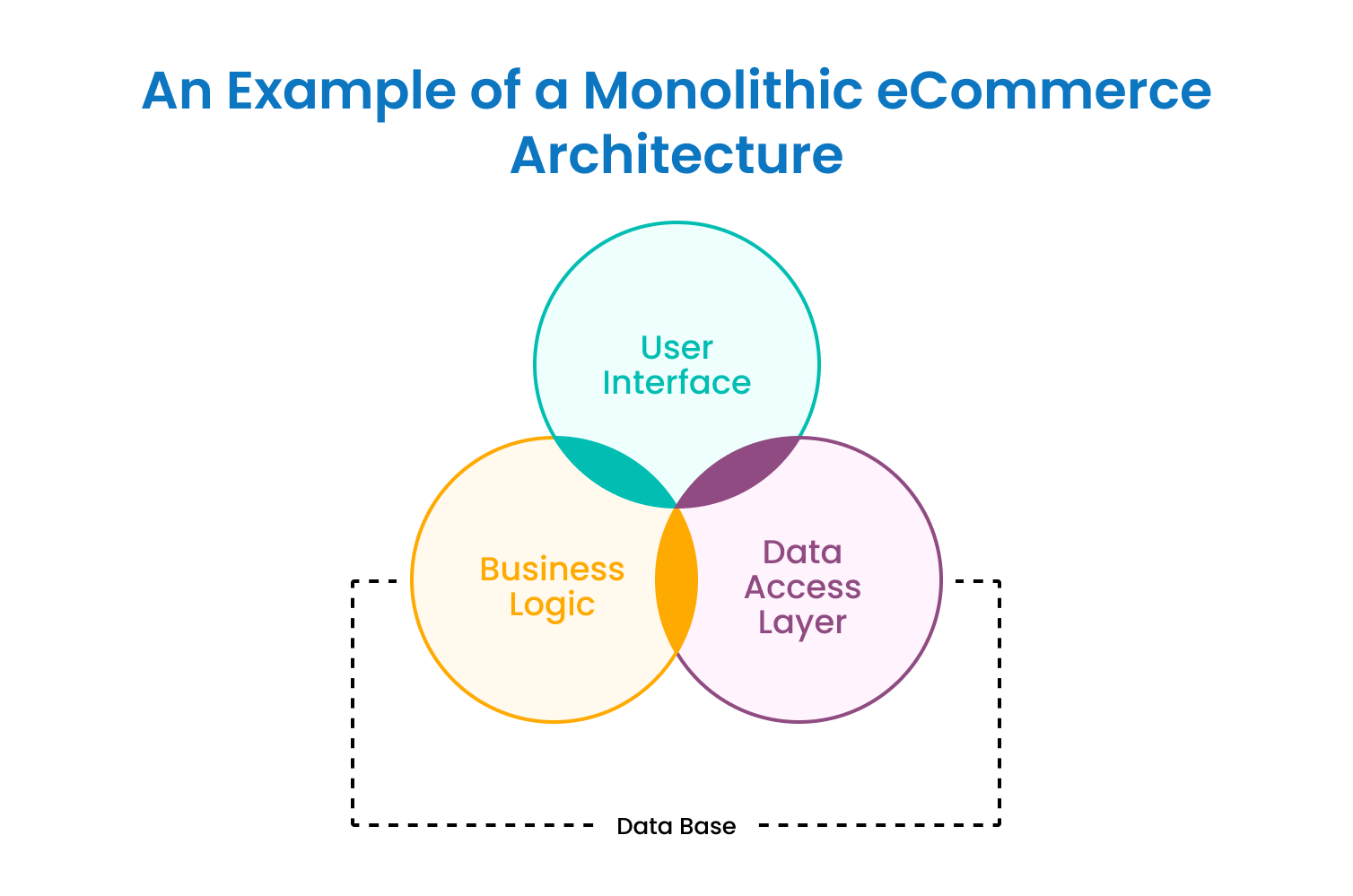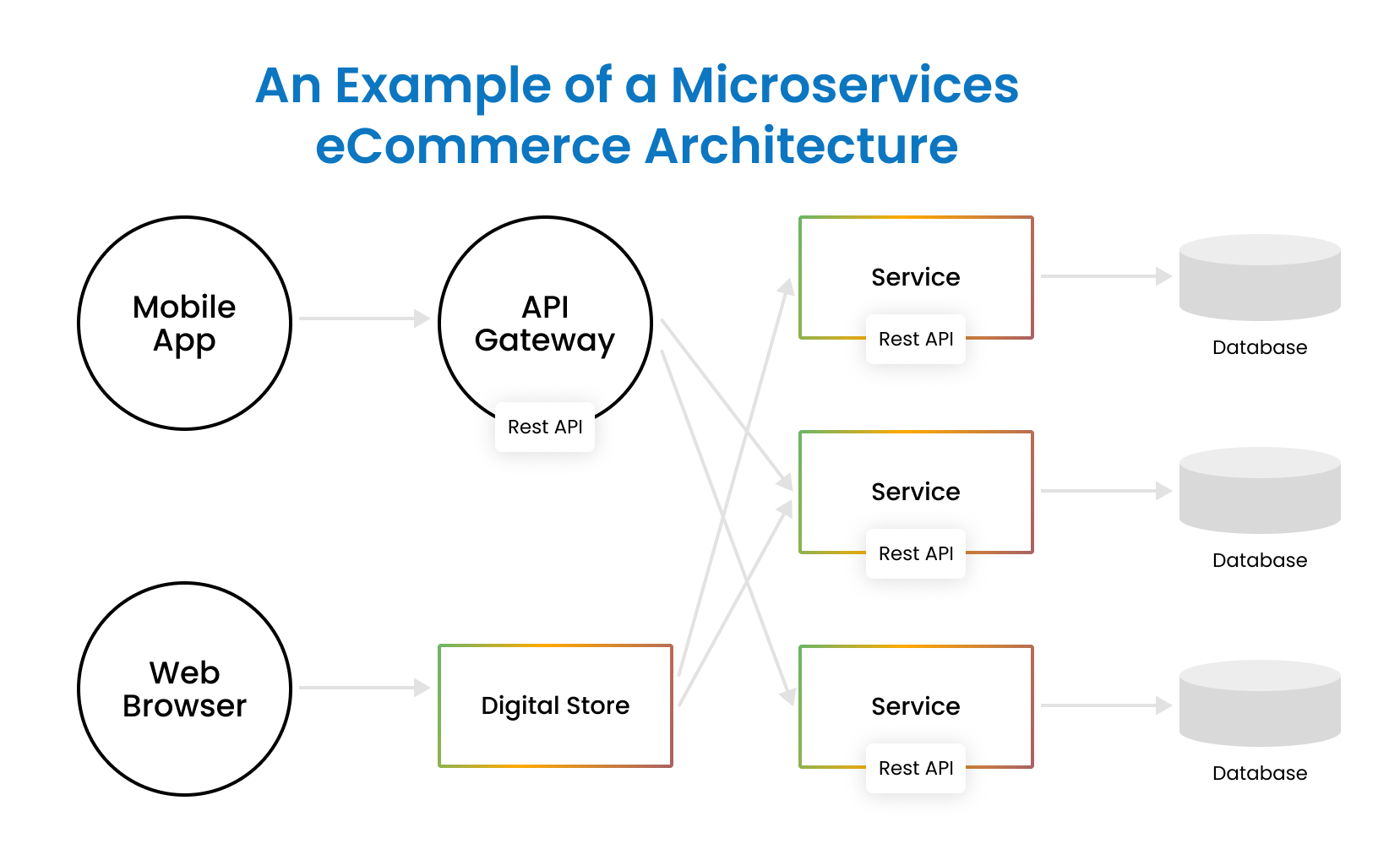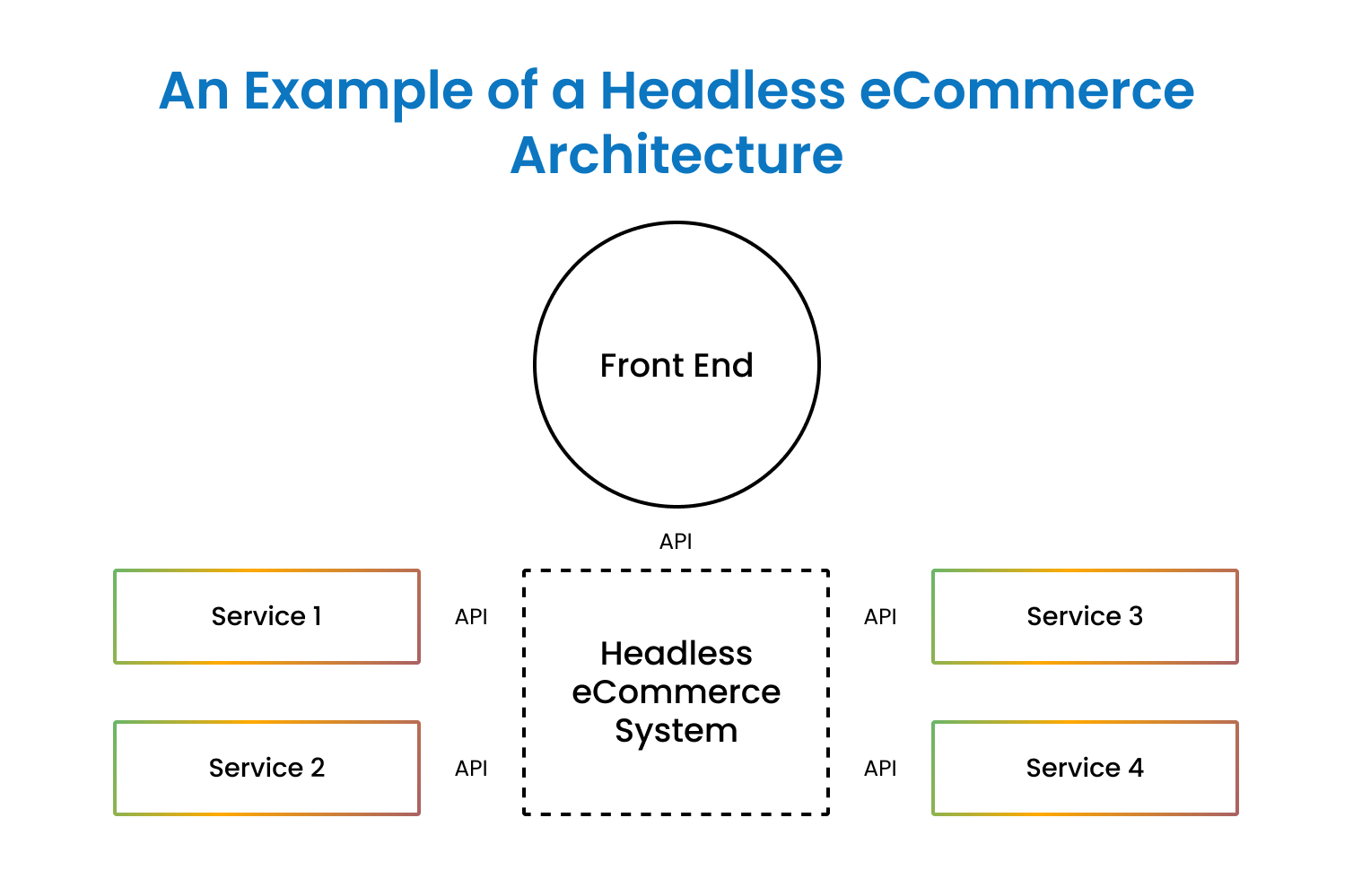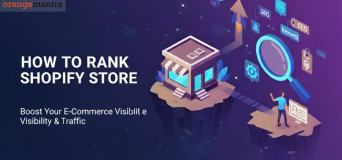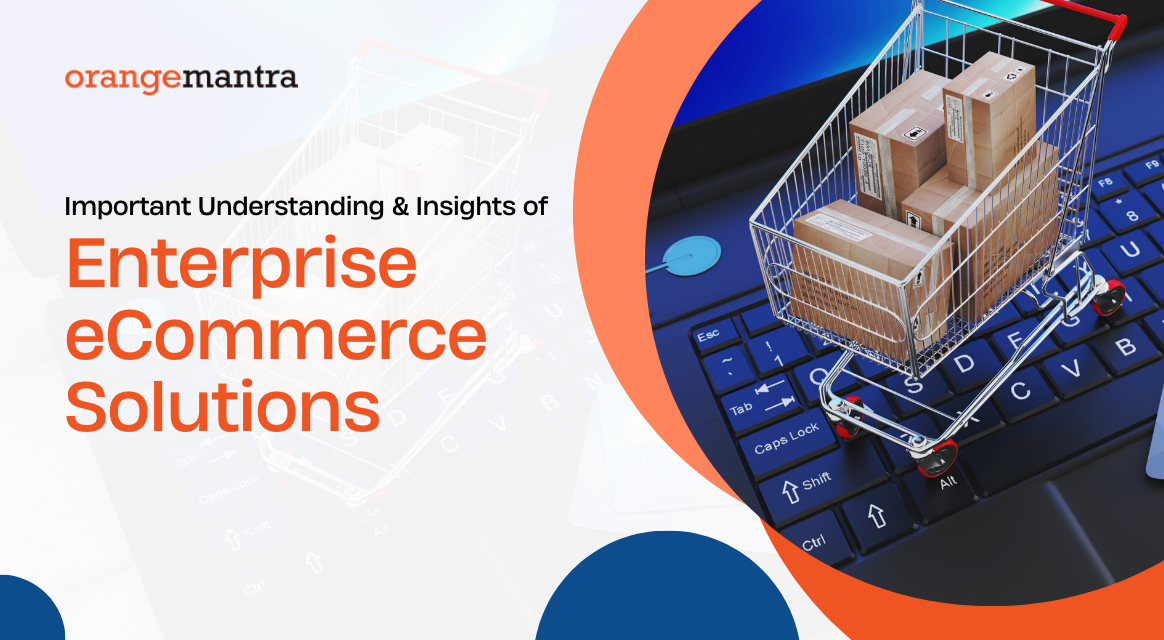
Enterprise eCommerce solutions help retail businesses manage large product catalogs, improve customer interaction, streamline payments, shipping, returns, analytics, and integrations like CRM/ERP—enabling growth, scalability, and competitive advantage in online retail.
- Core Benefits: They allow retailers to add/manage many products, deliver user-friendly experiences, handle payments and shipping, and collect customer data.
- Business Growth: Enterprise platforms support scalability, advanced features, and third-party integrations essential for expanding retail operations.
- Competitive Advantage: Using the right enterprise eCommerce platform helps businesses stay ahead by offering flexibility, security, and efficient process management.
Investing in enterprise eCommerce solutions is a required phenomenon for small-size retailers to become big and existing giants to further scale up. Industry-best eCommerce solutions provide the capabilities, extended features, numerous integrations, and flexible ways to grow ahead.
Are you an existing digital retailer or want to get started? No matter what, your business must be fully in line with the best enterprise eCommerce solutions and an ideal platform to grow.
In the current competitive business scenario, relying on enterprise eCommerce solutions for custom eCommerce development means the following things.
- Add a long list of products and manage them properly.
- Better interact with customers and provide a user-friendly shopping experience.
- A seamless way to collect payments and keep track of the same.
- Ship product-wide across demographics with ease and comfort.
- Easy to handle product returns and manage the information.
- Collect all customer-related information and analyze the same.
- A simple way to integrate third-party CRM and ERP eCommerce integrations.
- Add advanced technical methodologies and other such things.
In short, getting the required enterprise eCommerce solution is an integral part of online retail business to prosper and stay ahead of the competition.
But that’s not all, we will cover more things about the insights of enterprise eCommerce solutions related to result-driven custom eCommerce app development or website as per your need.
Table of Contents
Getting A Quick Understanding Of Enterprise eCommerce
To be precise, enterprise eCommerce is all about running a business-to-business (B2B) company. In a prominent way, it’s a large-scale enterprise that deals in offering a wide range of products to business customers, be it shopkeepers, vendors, suppliers, and more.
Enterprise-level eCommerce platforms allow businesses to rely a custom and feature-rich eCommerce software development and meet the requirements of different sets of customers.
Key inclusions of enterprise eCommerce solution or a platform.
- Offer multiple products & services to a global audience.
- Generate high revenue from the business.
- Aligning businesses with multiple distributors & manufacturers across different locations.
- Manage and cultivate the customers on a large scale.
What Makes You Invest In Enterprise eCommerce Solutions?
Investing in all-in-one online marketplace application software is not just beneficial for your business to go global. It even helps you attain the following set of advantages.
- Scale up your business: Small eCommerce solutions are available for businesses to operate at a limited scale. But when it comes to extending your business offerings, enterprise eCommerce solutions offer you an advanced set of extensibility, functionalities, features, and integrations. In short, the eCommerce platform provides you with the required technical supremacy to extend your business to an optimum scale.
- Bring in more features & functionalities: A small eCommerce platform does not go well with an extended business requirement. It requires an industry-best enterprise-level (big business-specific solution). Thus, it helps in bringing an advanced set of capabilities and functionalities to an optimum extent.
- Add the required set of innovations: Another significant advantage of relying on a B2B eCommerce platform is to ensure end-to-end and result-oriented eCommerce marketplace development. With that means, an eCommerce platform offers you the advantage of adding any feature or even customizing the same with the help of an expert partner.
- Optimize the site with security: Undoubtedly, enterprise eCommerce solutions like Shopify, BigCommerce, or even Magento development platforms provide the optimum level of site security. Feature-rich platforms come packed with advanced security capabilities to directly protect your data.
- Ensure seamless process management: Do you know that enterprise eCommerce platforms are even the best omnichannel commerce solutions for businesses having multiple physical all as well as online stores? With the capabilities of an online retail platform, you can manage all sorts of retail business entities and integrate functionalities in a hassle-free manner.
B2B Enterprise-Specific eCommerce Platform Features To Know
When it comes to looking at the core features of a B2B eCommerce platform, the list might get long. But here, we will cover some of the essential and must-have features to add to your store.
- Add vendor contracts from a different set of demographics.
- Easy to manage product pricing and catalog management.
- Functionality for customers to buy products in bulk.
- Fast product ordering functionality to enhance customer experience.
- Flexibility to restrict the access control for untrusted users.
- End-to-end customization functionality to add preferred choice of features.
- Price quotation and overall information management.
- Multiple digital payment options.
- Product information management.
- Corporate account management from any demographic.
- Easy to manage multiple online and offline stores.
- Robust content management system.
- Add multiple shopping lists.
As mentioned above, the list of enterprise eCommerce platforms as a trustworthy solution for business has an innumerable number of features. It is an ideal move to discuss your requirements with an eCommerce consultancy to decide on the list of features and functionalities.
Know Enterprise eCommerce Solution Architecture
One of the most important aspects of an enterprise-level eCommerce platform is choosing a preferred choice of architecture.
For your reference:
“eCommerce architecture refers to the blueprint of an online retail store that comprises the technical requirements, its hardware & software categorization, and overall structure. The architecture covers different software elements including server, database, programming languages, and all other technical aspects”.
Different Types Of eCommerce Architecture To Choose From
Monolithic Architecture
The monolithic eCommerce architecture is a kind of cohesive system that consolidates different functionalities of an online retail store into an extensive codebase. With the help of this eCommerce architecture, your retail store solution ideally interferes with the user interface and data access layer, and works on the business logic layer. Moreover, it’s an integral part of the traditional eCommerce software development services offered by a reliable partner.
Pros & cons of monolithic eCommerce architecture
Pros
- A straightforward architecture that comprises a smooth development process.
- Easy to monitor and debug with the help of professionals.
- Easy to control and scale up as per the requirement.
Cons
- Traditional architecture with low-reliability factor.
- Difficult to upscale as per the requirement.
- Features complex functionality updates.
eCommerce Microservice Architecture
The eCommerce microservice architecture is more like an API-driven architecture. With that means, this architecture features interconnected services that communicate via different APIs and perform a specific action. Each microservice is a subsystem of different business logic and architecture.
Pros and cons of microservice architecture
Pros
- Simple to scale up as per business requirements.
- Easy to implement different technologies.
- Smooth and fast to update.
Cons
- It requires a complex project management.
- Need sophisticated development expertise from professionals.
- Require continuous maintenance and support.
Headless eCommerce Architecture
As the name itself implies, headless eCommerce architecture segregates both the frontend (head) and backend of an eCommerce website. The frontend performs its own set of functions to display the user interface, allow customers to buy products, and improve interactions. On the other side, the backend of the eCommerce website assures proper data, information, inventory, and other management.
Pros And Cons Of Headless Commerce Architecture
Pros
- Flexibility to integrate different sets of technologies.
- Easy integration with CRM, ERP, CMS, and more.
- Ensure improved performance of the eCommerce platform.
Cons
- Complex e-commerce ecosystem that can only be handled by professionals.
- Additional communication overhead might slow down the system.
How To Choose The Right eCommerce Architecture?
To make a wise decision, rely on the following steps:
- Do consider the required capabilities in terms of technical support and maintenance.
- Do consider customer interaction research.
- It is better to define your architectural goals before selecting.
- Choose a specific range of tools and technologies.
- Create a lasting operating system and team structure.
Key Considerations To Select The Best Enterprise eCommerce Platform
Here’s the list of things to keep in mind when selecting the appropriate B2B eCommerce platform for your retail business.
On-Premises Or Cloud-Based eCommerce Platform
Operations and management of your business can also be greatly influenced by whether a B2B eCommerce platform is hosted on-premise or in the cloud.
An on-prime hosted platform has the ability to give you full autonomy over data as it is operated on your own servers. However, this would also necessitate large upfront investments in hardware and IT infrastructure as well as long-term costs of maintaining the system.
On the other hand, Cloud-hosted B2B eCommerce platforms have low initial costs and cheaper infrastructure as well as IT resources for a vendor since it gets hosted on an external platform. But you may need more data control and thus will be taken care of with your sensitive information by an external vendor.
On-premise hosting platforms are beneficial for organizations that have high data privacy or compliance requirements. If these do not bother you, then a cloud-based B2B eCommerce platform would be fine. Finally, the choice will be determined by a business’s particular requirements, budget, and preferences.
Choose An Open-Source eCommerce Platform
An open-source eCommerce platform allows you to make changes to the source code of a given platform. It provides you with unlimited creativity when designing and configuring your B2B website. This is good if you have app developers in-house as a way to streamline and customize the development process thus having complete management.
For instance, the Magento B2B eCommerce platform is among the best platforms you can download and customize to suit your eCommerce requirements.
Select The Already Built eCommerce Templates
In a B2B eCommerce platform, pre-built templates are vital because they enable a rapid and affordable launch of an online store.
With ready-made templates, you do not waste time and funds creating a custom website by designing it and developing one manually. Instead, you can pick one that fits your brand and style but modify it to align with what your business needs. Hence, it allows you to open your online store more quickly and easily with lower costs.
Focus On Your Enterprise-Level Requirements
A B2B e-commerce platform should be selected based on business requirements. They can assist you in choosing the right platform that will satisfy the specific needs of a business.
Here are a few aspects that you must keep in mind while evaluating B2B eCommerce platforms based on business requirements:
What kind of products or services does your business provide? Whether the platform include those offerings?
- How do you accept payment? Can those offerings be facilitated by the B2B eCommerce platform?
- Is the B2B eCommerce platform compatible with other systems such as CRM or ERP for seamless workflow?
- Is the platform easy to use by customers?
- Is the eCommerce platform able to withstand increased traffic and sales?
- Is the platform secure enough and complies with industry standards?
- Is the B2B eCommerce platform affordable? Or if not so, are there customization plans to fit your budget demands?
- By analyzing your business needs thoroughly, you can select a B2B eCommerce platform that is good for your business and provides the necessary groundwork for online sales.
Ensure Platform Security
Security is an important factor to take into account as a B2B eCommerce platform. B2B deals often involve very sensitive information, such as financial data, confidential business information, or employees’ personal. Of course, you would want it to land in the right hands.
Furthermore, B2B companies are also legally bound by regulations such as privacy legislation like the European Union’s General Data Protection Regulation (GDPR) to safeguard their customer’s data.
Therefore, when choosing a B2B eCommerce platform, you must consider the security measures it has in place, such as:
- Encryption
- Secure socket layer (SSL) certificates
- Data backup and recovery
- Adherence to industry security standards PCI-DSS
Cost Associated With eCommerce Platform
Not all B2B companies have unlimited resources to allocate to technology investments. Therefore, they should be cautious as to where their money goes.
Here are a few questions you must ask before choosing a B2B eCommerce platform for your business:
- Any hidden expenses of the platform?
- What is the potential rate of return?
- Is the platform scalable for your business?
Make Sure The Platform Provides You With Optimum Support
There are many complications involved in B2B eCommerce platforms. Many users require assistance navigating through the platform. Furthermore, some businesses would also like to take advantage of the platform.
So, when picking a B2B eCommerce platform it’s necessary to pay attention not only to levels of support and resources available such as technical ones, user documentation training the community. It would help you ensure that the businesses will be able to use the platform effectively without having any issues.
Concluding Thoughts
In conclusion, relying on enterprise eCommerce solutions is an imperative aspect of retail business to have the right technologies, tools, architecture, and structure. Get started with suggestions from a reliable eCommerce consultancy to choose the right platform, working architecture, integrations, and the required set of technologies. Moreover, doing this will help you stay ahead of the competition in the retail sector.
OrangeMantra is a trusted retail digital transformation and business acceleration company that can help you become an imperative part of the eCommerce environment. Connect with professional eCommerce experts and move in the right business direction.
Frequently Asked Questions
1. Is that necessary to have an eCommerce platform for retail business?
If you want to grow your online retail business to an extent with having a multitude range of products, widespread customers, and new profit avenues, then create the store on a reliable eCommerce platform. A selected platform will provide you with all the required technologies, tools, and integrations to have the required set of features.
2. Which is the best enterprise eCommerce platform?
To be precise, there are several eCommerce platforms available in the digital space including names like Magento, Shopify, BigCommerce, WooCommerce, Salesforce Commerce Cloud, SAP Hybris Commerce, and the list goes on.
3. How to get started with B2B eCommerce development?
First and foremost, connect with our reliable and result-driven eCommerce experts to discuss your requirements and avail yourself of an ideal solution. Following this, let the eCommerce developers start working on your online retail store and provide you with a full-fledged website or app in the shortest possible time.

